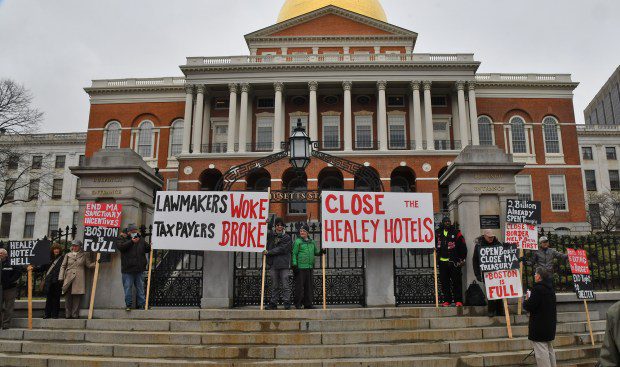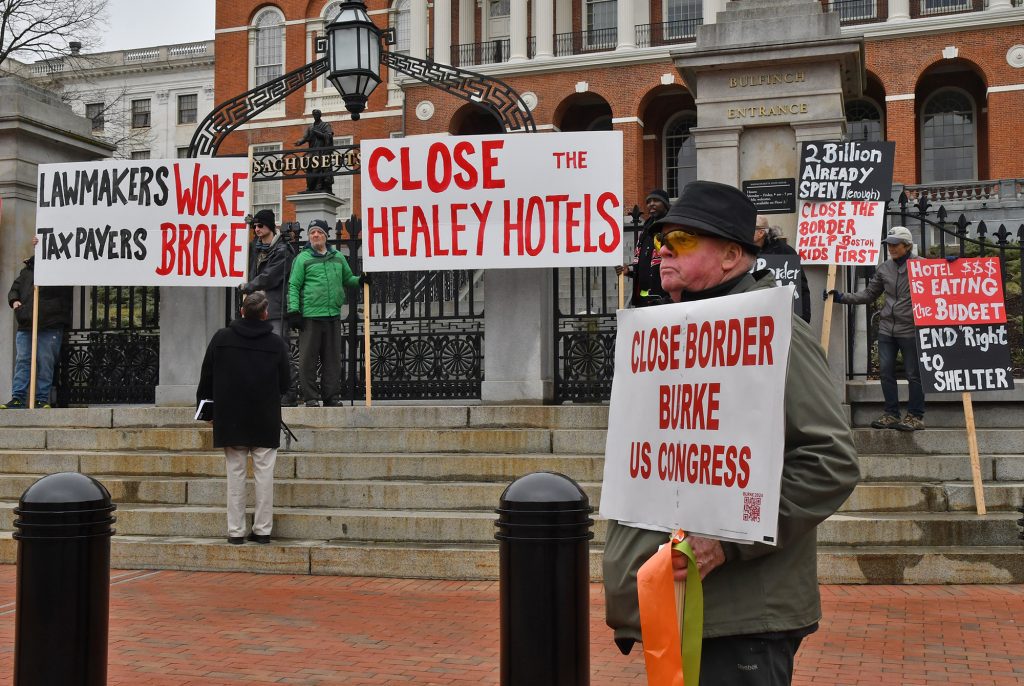A small group of protestors gathered outside the State House on Wednesday to oppose spending on emergency shelters in Massachusetts that are providing temporary housing to both local residents and migrants from other countries.
The small group held up large signs on the steps of the State House with messages like “close the Healey hotels” and “lawmakers woke, taxpayers broke.” State officials have estimated that spending on emergency shelters could reach $932 million this fiscal year and $915 million in the next.
“Maura Healey, shame on you,” said Lou Murray, chair of Bostonians Against Sanctuary Cities and a former contributor to the Herald. “ And I think if we have one message today, it’s end the right to shelter and close the Healey hotels. The lawmakers are woke and the taxpayers are broke. And we’re tired of it.”
Massachusetts’ long-standing right-to-shelter law mandates the state to provide temporary shelter to families with children and pregnant women through the emergency assistance program. In the past year, a large number of migrants fleeing dangerous conditions in their home countries have arrived in Massachusetts.
The migrant families with children and pregnant women who are given access to the emergency assistance shelter program are legally residing in the United States and have been recognized by the federal government, often as humanitarian parolees or asylum seekers.
Those who are not citizens seeking shelter must have been “legally admitted for permanent residence or otherwise permanently residing under color of law in the U.S.” to use taxpayer-funded shelters, according to state regulations.
Approximately half of the individuals in the state-run emergency shelter program are migrants from other countries, while the rest are Massachusetts residents, as per the Healey administration.
Henry Barbaro, the executive director of the Massachusetts Coalition for Immigration Reform, stated that “tax dollars are a precious resource.”
“What is happening in Massachusetts is (an) entirely unsustainable expenditure of tax dollars. I think that there are plenty of poor and needy Americans that should come first,” he said.










